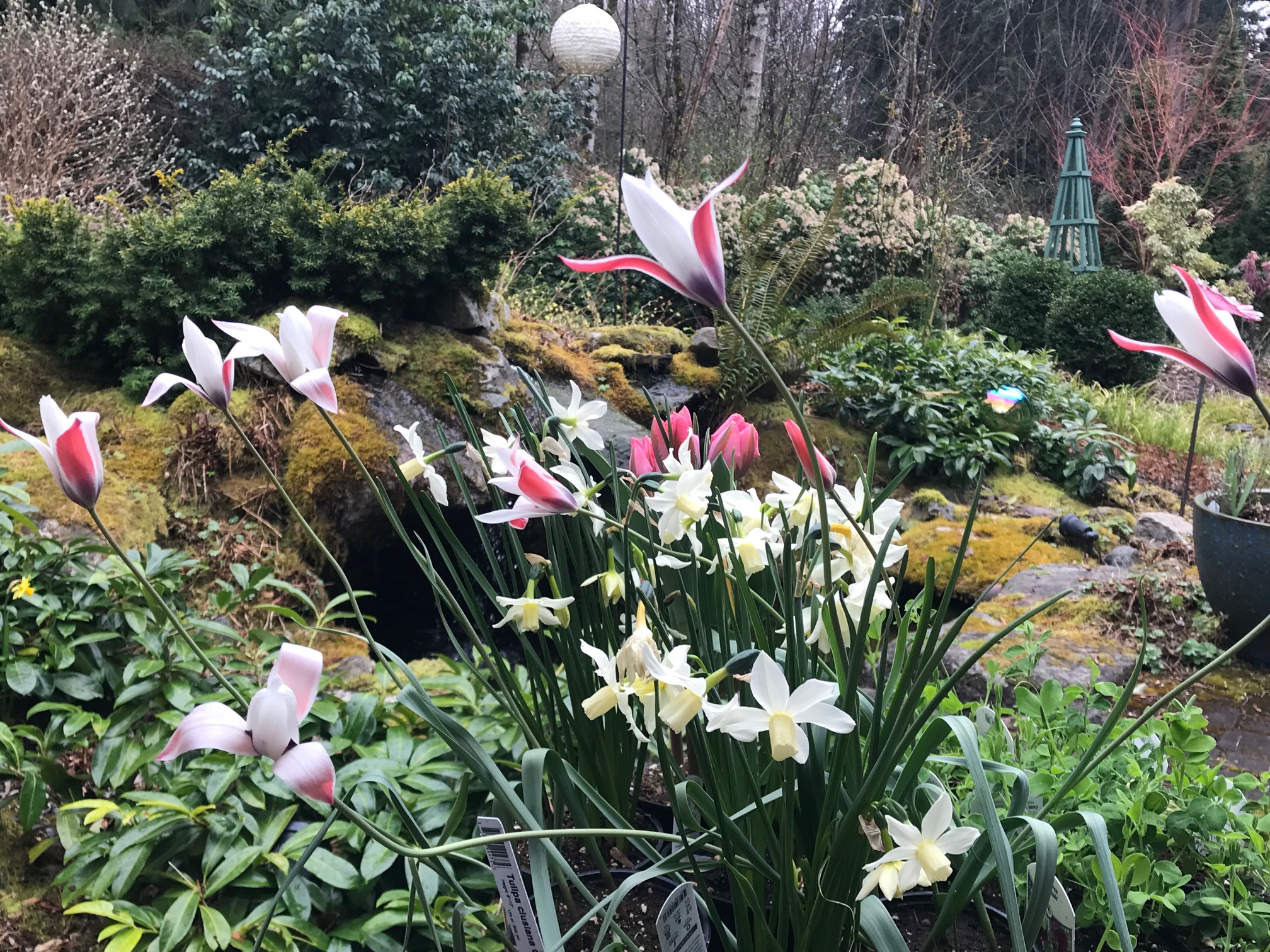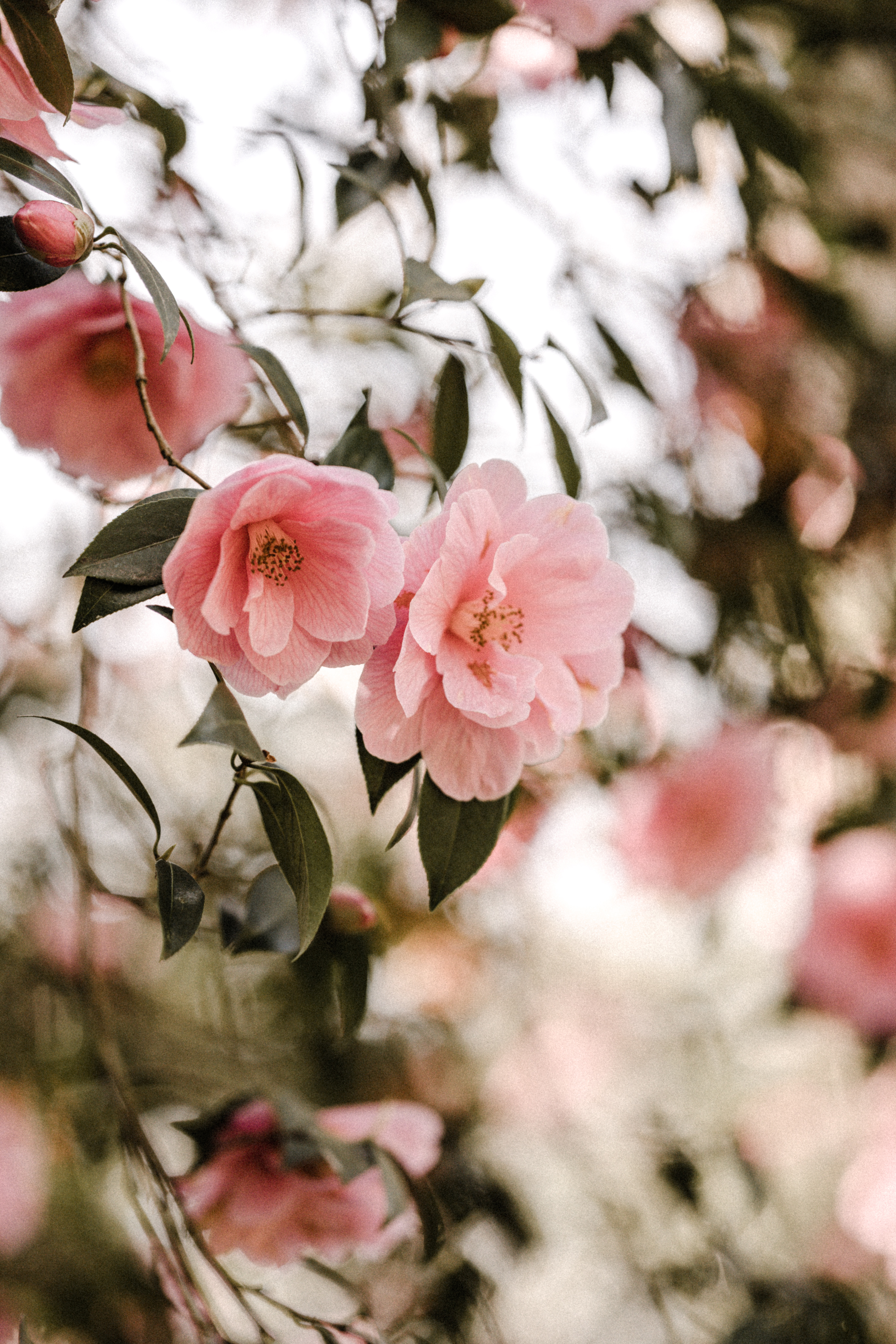AFTER A LONG, COLD winter here in the Northwest, it’s finally starting to feel like spring. There’s something about the change of seasons that makes me want to take stock of where I am now, at this moment. What do I want to focus on? What do I need to do?
I find I want to confess something here that I wasn’t planning to: earlier this month, I almost gave up on writing. I was discouraged by the numbers on my latest royalty statement and by gathering documents for taxes (ugh) which made me have to face (again) how much money and time I’ve put into The Walled Garden, against the return I’ve seen so far.
Full disclosure: it was probably dark and pouring buckets of rain that day too.
Anyway, I had a serious talk with God and told him I would give up writing if he wanted me to. Two days after that, I had to get it together and haul myself to downtown Seattle first thing in the morning—something I haven’t done in years—for the first day of the AWP Writers’ Conference. I felt like a sham, a pretender, and yes, an imposter.
Except . . . this time I did have an actual, physical book to show for all these goofy years I’ve spent on it.
My favorite panel at AWP was called “Playing the Long Game: Novels and Memoirs Ten Years (or more) in the Making.” Here, I found my people—writers who were willing to talk about how long it can really take to write a book. These writers had spent years writing and rewriting, researching, traveling, learning other languages, dealing with health issues, and figuring out what they really wanted to say and how to say it. One writer said that knowing what story she wanted to tell took her a thousand pages. Another said it took him eleven years to develop his own personal aesthetic. A third writer pointed out the need to honor the person you were and to allow yourself to be slow—and even more, that taking a long time to write something was a strength.
At some point, someone asked the million-dollar question: Why are you still writing?
(It’s like asking: Are you still suffering from that strange, incurable condition?)
One person said it was habit, and I thought, yes. Another said she liked making beautiful sentences, and I totally get that too. Art is one place, she said, where we can take something difficult and make it beautiful.
For me, I think the answer is a combination of those two things. Writing is a habit now—I’m not sure I would know how else to fill that time. And the making of something beautiful—yes. Yes. There is so much that is ugly in our world. Anxiety and uncertainty about the future feel paralyzing at times. If it’s within our power to make something beautiful, why wouldn’t we do that if we can?
If we can. The pressure the world puts on each one of us every day to give up our dreams, to throw in the towel, to admit we can’t do what we dream of doing, is unrelenting. There are a million ways to measure “success”—which can equal a million ways to feel bad about what we’ve done or the way we’ve done it.
This post started out as a meditation on spring, and I had a half-remembered line of poetry from Robert Frost I intended to include. But when I looked it up, I found another lovely Frost poem I’d forgotten about called A Prayer in Spring, and I realized the first stanza perfectly captures what I’m trying to say:
Oh, give us pleasure in the flowers today;
And give us not to think so far away
As the uncertain harvest; keep us here
All simply in the springing of the year.

The flowers of today in my garden
I love the rhythm of these lines, and the way changing “spring” to “springing” gives the energetic, playful feeling of the season. What I love most, though, is the reminder to take pleasure in the flowers of today—because the truth is, the harvest is always uncertain. We can write or plan or create, but the “harvest”, i.e. what comes to be because of our efforts, is always beyond our control.
If there is anything that’s certain, it is, as one of the panelists said, that the world will do as it will. And that brings me back to my original question: what to do now? Because however much I might long to, I can’t stay here forever “all simply in the springing of the year.” Time moves on in that way it has, and the seasons will change again.
But I have to believe that that being present to the flowers today is worth it, no matter what harvest it brings.
And so, for now, I plan to keep writing.
Featured image: Photo by Annie Spratt on Unsplash
Today’s flowers photo: my own

I love that they had a panel at AWP on the Long Game of writing a novel. I am so glad that it spoke to you and yes, you should definitely keep on writing.
Spring flowers make me happy and bring joy to my soul that is so tired of the wet and cold winter.
Thank you, Robin. I so appreciate your support!
if a tree falls in the forest, and no one hears, does it make a sound?
of course, even as we write, our audience is invisible silent. we write to use our voice. we write , we make art, we compose music even if never heard. it’s a pleasure– and a necessity.
you certainly have that pleasure, that need. wouldnt you keep writing despite it not adding up?
Thank you, Susan — this means a lot coming from a fellow (sister) artist! Thanks for your encouragement to continue creating, no matter what the result or the reception.
I absolutely love that you wrote a supportive comment to yourself. Yes, please keep writing!
“Each mortal thing does one thing and the same:
Deals out that being indoors each one dwells;
Selves — goes itself; myself it speaks and spells,
Crying Whát I dó is me: for that I came.”
(From As Kingfishers Catch Fire, by Gerard Manley Hopkins)
Melody, thank you so much for reminding me of Gerard Manley Hopkins’ beautiful words. I love this poem and I’m so touched that you would think of it in relationship to me and my writing. What a wonderful gift! Thank you!